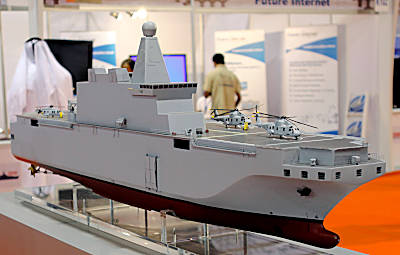JOINT BASE MCGUIRE-DIX-LAKEHURST, N.J. — With realignments, base closures and joint basing initiatives bringing together all four services here, the Air Force’s 87th Logistics Readiness Squadron has taken jointness to a new level keeping their broad mix of aircraft fueled.
Once upon a time, the 87th LRS was responsible for providing petroleum, oil and lubricants primarily for C‑17 Globemaster III and KC-10 Extender aircraft assigned to wings at McGuire Air Force Base, as well as for transient aircraft at the base. That was before McGuire merged with neighboring Fort Dix and Naval Air Engineering Station Lakehurst on Oct. 1, 2009, to become the Defense Department’s only tri-service base.
It also was before two realignment actions brought Navy and Marine Corps units from Naval Air Station Joint Reserve Base Willow Grove, Pa., and Marine Corps assets from Marine Corps Reserve Center Johnstown, Pa., to the New Jersey base during the past several months.
The merger and new arrivals brought to the joint base a full complement of Army, Navy and Marine Corps fixed-wing and rotary aircraft -– all now being fueled by the 87th LRS.
“At most deployed locations, it’s pretty typical to service all types of aircraft,” said Air Force Senior Master Sgt. Jon Kristof, 87th LRS superintendent. “But at the stateside location, it is somewhat out of the norm to do it on a regular basis. That doesn’t matter to us here. We service them all.”
The changes have increased monthly fuel output here by about 600,000 gallons, for a total of about 4 million gallons. Most of the newly arrived aircraft are helicopters or smaller fixed-wing planes with relatively small fuel tanks, Kristof explained.
“That means we do a lot more [fuel] runs, but not necessarily a lot more gallons,” he said.
Learning to refuel different aircraft, and to work with other services to identify their unique ways of doing things, involves “a learning curve on both sides of the fence,” Kristof said.
“As new customers, they have to adapt to how the Air Force does business, and we have to adapt to how the other services do their business when they are refueling,” he said. “Even though we are all Department of Defense, we still speak a different language, so we have all learned a lot about that over the last year and a half.”
That makes Joint Base McGuire-Dix-Lakehurst a perfect training ground to keep the fuels management flight primed for future deployments. It’s particularly valuable, Kristof said, in giving junior members such as Airman 1st Class Alonso Hall experience working with other services before their first deployments.
Hall, with just 14 months in the Air Force, has been a quick study. He was named the 87th LRS’ “Pumper of the Month” in June for personally dispensing 422,271 gallons of JP‑8 jet fuel. Hall’s recognition came shortly after the 87th LRS was named the Air Force’s best fuels management flight for fiscal 2010.
The award marked the first time the Joint Base McGuire-Dix-Lakehurst squadron received the Air Force’s only flight-level award, presented by the American Petroleum Institute. The award was based on direct mission support, innovative management and quality-of-life initiatives.
“This was a total team effort in every way,” said Air Force Chief Master Sgt. Eric Stone, the 87th LRS’ flight chief.
“Every person in this flight had a part in winning this coveted award,” he said. “The accomplishments for the package were collected from our home base, downrange, Army, Navy and Marine Corps personnel making this a true joint-base accomplishment.”
Source:
U.S. Department of Defense
Office of the Assistant Secretary of Defense (Public Affairs)

 von
von 